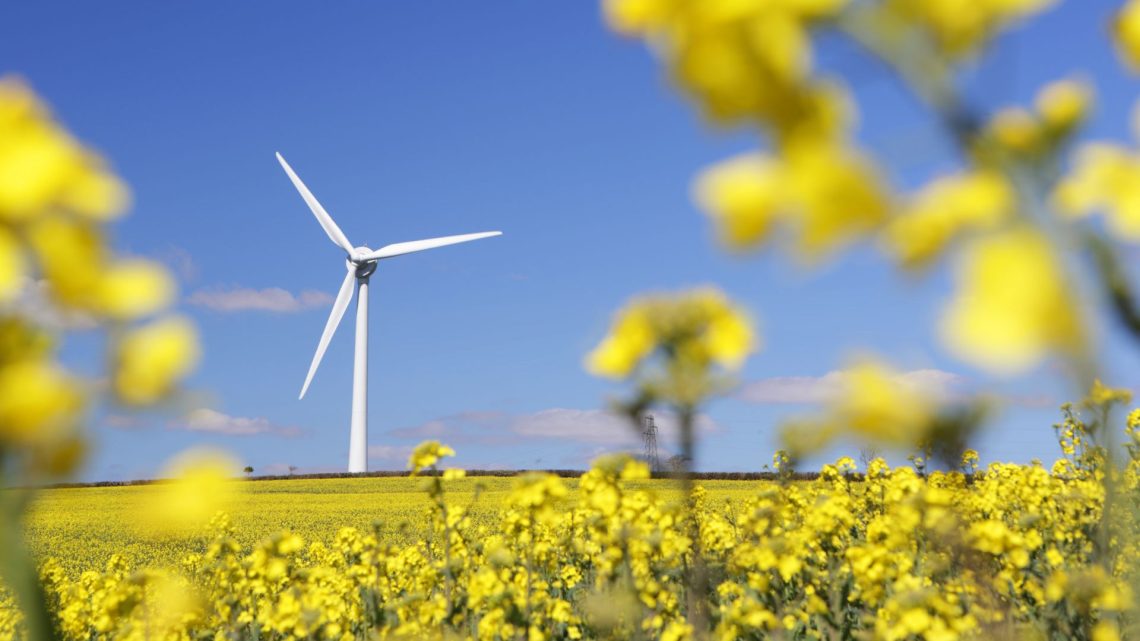-
IIRC
Climate change and environmental issues are currently one of the greatest global challenges to sustainable development. The Global Risk Report by the World Economic Forum* shows that the decade to come will be characterized by social and environmental crises driven by the fundamental geopolitical and economic trends. Even though the cost of living crisis is currently classified as the most serious global risk, it refers to a short-term two-year perspective. One of the most rapidly exacerbating global threats in the ten-year perspective is the loss of biodiversity and the collapse of the ecosystem. The report shows that as many as six environmental threats are among the top ten key threats in the upcoming ten years. The two referred to hereinabove notwithstanding, these include, in order: failure to mitigate climate change, failure of climatechange adaptation, as well as natural disasters and extreme weather events.
The Emissions Gap Report 2022** shows that the world is not achieving the Paris Agreement’s goals. Since COP26 in 2021, there has been little progress in reducing the emissions gap until 2030, the gap being defined as the difference between national commitments to reduce emissions and emissions reductions necessary to achieve the Paris Agreement goal of limiting temperature rise. The report underlines that the current policies and efforts without additional action point to a 2.8°C increase by the end of the 21st century. The current unconditional and conditional Nationally Determined Contributions , if implemented, will limit the temperature rise to 2.6 or 2.4°C, respectively. This is far from the Paris Agreement, the goal of which is to limit global temperature increase to significantly below 2°C, and to 1.5°C in the bestcase scenario.
The report finds that only an urgent system-wide transformation may ensure tremendous reductions necessary to reduce greenhouse gas emissions to 2030. A 45 percent reduction in global annual emissions is needed to reach the 1.5°C target and 30 percent to reach the 2°C target.
* https://www3.weforum.org/docs/WEF_Global_Risks_Report_2023.pdf
Conclusions from the documents presented imply that the risks related to climate change, both the physical and those related to transformation, will need to be more fully and expressly accounted for in the PZU Group’s management. They affect the operations of the PZU Group, but in turn the Group’s activities may contribute to mitigating the adverse impact of climate change. Both perspectives will have a more and more important impact on the financial results.
Monitoring the efforts of international organizations
The PZU Group is monitoring the activities of financial institutions and international organizations, i.e., the United Nations (UN), Organization for Economic Cooperation and Development (OECD) and the European Commission. By disclosing information and managing risks related to climate change in the financial sector, the PZU Group observes the provisions of the climate agreement entered into by 195 countries in Paris in 2015. A document of major significance as a guideline for action from the perspective of efforts aimed at reducing natural disasters is the “Action Plan on the Sendai Framework for Disaster Risk Reduction 2015-2030 – A disaster risk-informed approach for all EU policies” (Sendai Framework for Disaster Risk Reduction 2015–2030). When working over solutions to address environmental and climate change challenges, the PZU Group is also accounting for the efforts of the Polish government, and the assumptions found in the Energy Policy of Poland until 2040.
-
2-28
PZU Group’s participation in initiatives for sustainable development
Preventing climate change and adapting to new requirements means that decision-makers, companies and the financial sector have to act in a coordinated manner. That is why PZU takes active part in industry initiatives, is engaged in social consultations and issues opinions on draft acts concerning climate protection. In 2022, PZU became significantly more committed to external initiatives for sustainable development:
Since June 2017, PZU has been a signatory to the United Nations Environment Programme Finance Initiative, UNEP Finance Initiative. The global partnership between the United Nations Environment Programme and the financial sector serves the purpose of mobilizing the entire financial system (including the insurance sector) to act towards the achievement of sustainable development goals.
In April 2022, PZU joined the institutions cooperating with UNEP/GRID-Warsaw Centre to achieve the environmental Sustainable Development Goals within the SDG Partnership “Together for the Environment.” Another aspect of the cooperation between PZU and UNEP/ GRID-Warsaw Centre was participation in the third edition of the Climate Leadership program. This way, PZU joined the community of business leaders who understand the need to limit environmental impact and who perceive an opportunity for growth therein. Within the program, PZU has committed to develop a methodology and prepare the organization with a view to satisfying the CSRD Directive in reporting three greenhouse gas emissions for PZU and PZU Group.
In May 2022, PZU joined United Nations Global Compact – the largest global initiative supporting sustainable business. Another Member of UNGC is Bank Pekao. At the end of the 2022, PZU joined Climate Positive, an initiative coordinated by UN Global Compact Network Poland. In 2023, within the framework of the partnership, PZU will be involved in selected activities in six thematic areas: green and sustainable finance, climate education in Poland, circular economy, energy transition, sustainable food production, green cities.
In June 2022, PZU joined the Partnership for Sustainable Development Goals, initiated by the Ministry of Economic Development and Technology.
PZU continues to be involved in implementing the assumptions of the Polish Offshore Wind Sector Deal and Sectoral Agreement for the Development of the Hydrogen Economy in Poland. These projects have been initiated by the Ministry of Climate and Environment. They constitute a platform for inter-sector collaboration for Poland’s economic development, enhancing the competitiveness of Polish commercial undertakings, developing initiatives to ensure Poland’s economic and energy security based on low and zero emission sources of energy. One Member of PZU Management Board serves as member of the Offshore Wind Coordination Council.
The PZU Group systematically takes part in the dialog on sustainable development and finance. PZU representative chair the Task Force on Sustainable Finance at the Polish Chamber of Insurance (PIU). PZU also chairs the Natural Disaster Risk Management Team, one of whose tasks is to support The Polish Financial Supervision Authority Office (UKNF) in defining climate change stress tests. PZU is also involved in the works of the Polish Sustainable Finance Platform at the Ministry of Finance.
Since 2022, PZU publishes taxonomy disclosures in line with Commission Delegated Regulation (EU) 2021/2139 of 4 June 2021 supplementing Regulation (EU) 2020/852 of the European Parliament and of the Council.
ESG strategy indicator: Joining at least 3 new initiatives promoting sustainable development
Level of implementation 2022: Participation in 7 initiatives promoting sustainable development


